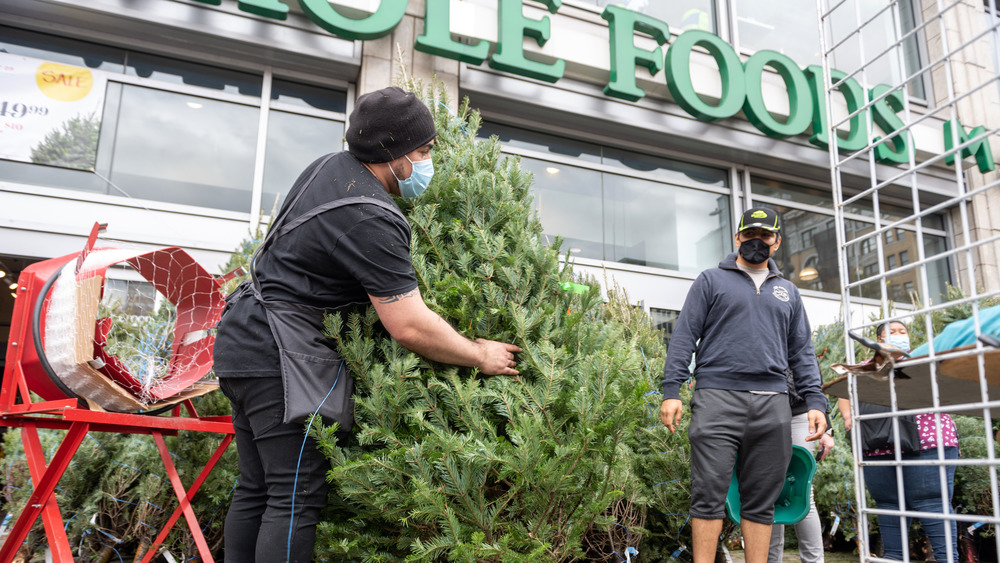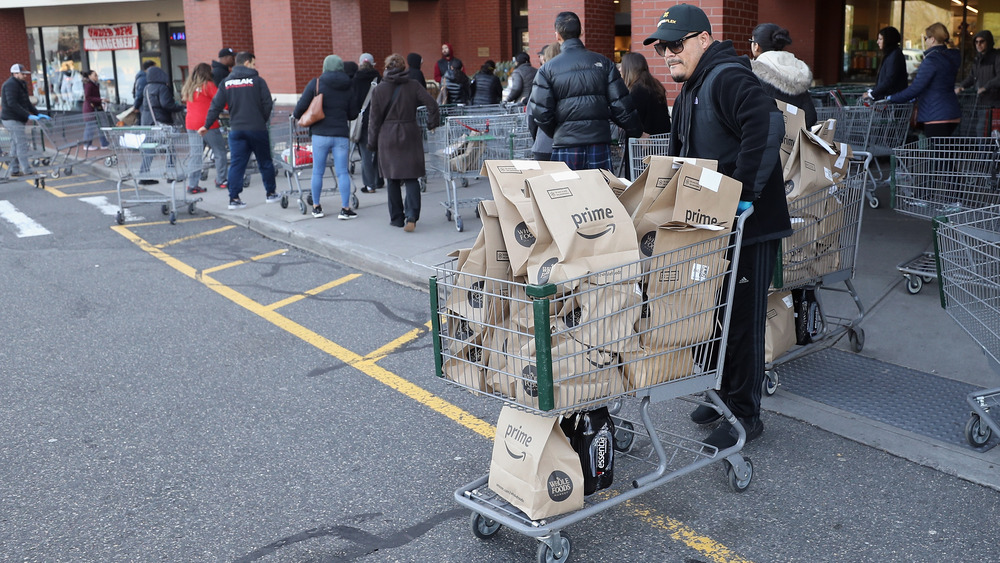Whole Foods Employees Are Fed Up. Here's Why
If the pandemic has revealed anything about our daily lives, it's the value of essential workers. It's hard to imagine social distancing and staying home without staple foods and essentials like toilet paper to get us through. But as Whole Foods workers are increasingly making clear, their management might not acknowledge that value – at least when it comes to COVID-19 safety precautions and fair pay. In a December 17 mass email to Whole Foods team members (via Whole Worker), an unnamed employee from Michigan outlined the problems and their demands for a better workplace as a part of the Whole Workers labor organizing effort.
According to a Guardian article from April about the rising health concerns of Whole Foods workers and a "sickout" protest organized by Whole Worker, employees described being denied paid sick leave at the time without a positive COVID-19 test, in places where they said tests were not readily available or affordable. "The bottom line is we don't think Whole Foods or Amazon is doing nearly enough as they could be to protect both employees and customers at the store in terms of personal safety and public health," a Whole Foods employee, Dan Steinbrook, told the Guardian.
What Whole Foods workers are asking from their employer
The email points to a number of concerns that have Whole Foods workers asking for changes during the pandemic, including COVID cases in almost every state (according to a tracker by Whole Worker), a lack of protective gear, a cut-back in benefits for part-time workers while the CEO asked employees to share their paid sick leave, and a pattern of squashing labor organizing efforts (via CNBC, Business Insider, Eater, Gizmodo). "Amazon and Whole Foods could provide us with the benefits we need, but they choose not to in order to save money for the very few who own the company," the letter read.
The organization is demanding expanded paid time off for sick employees and those concerned about exposure, mandating face coverings for customers entering the store (although Whole Foods has posted a policy that requires customers to wear masks or face shields when entering), yearly raises to account for inflation, the return of benefits for part-time workers, and a reinstatement of a temporary $2 per hour raise the company enacted in March for their extra work during the pandemic (via Supermarket News). They wrote, "These measures... are not very radical and the least the company could provide." Amazon has since started its own testing lab and confirmed that over 20,000 employees, including at Whole Foods, had tested positive for COVID-19 (via Washington Post).

